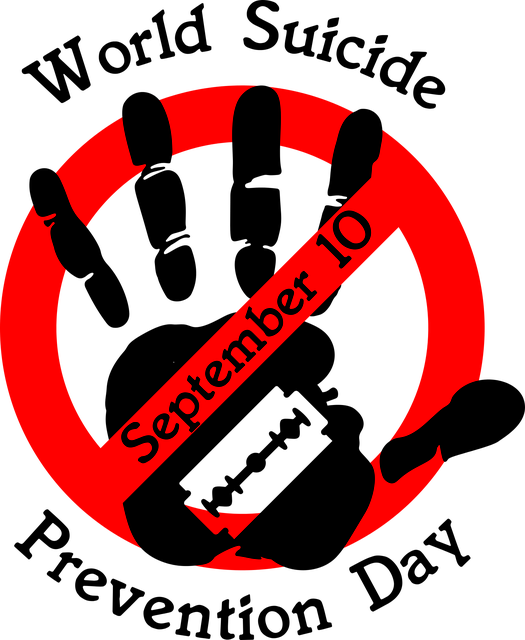Longmont Alcohol Abuse Therapy offers stress management workshops to combat chronic stress, a significant issue in demanding fields like healthcare. These workshops, through interactive activities and tailored guidance, teach participants self-care practices, emotional intelligence, and personalized stress mitigation tools. By combining engaging content with real-world examples, they enhance mental wellness and resilience. Effective marketing, including social media and community partnerships, reaches at-risk individuals. Workshop success is measured through diverse evaluation methods, ensuring continuous improvement based on Mental Health Policy Analysis, benefiting both participants and the community.
In today’s fast-paced world, stress has become an ever-present companion. To combat this, organizing stress management workshops can be a game-changer for individuals seeking balance. This article explores effective strategies for designing and promoting such workshops in Longmont Alcohol Abuse Therapy settings, focusing on understanding stress, its impact, and tailored content. Learn how these sessions can empower folks to navigate life’s challenges with resilience, ultimately enhancing overall well-being in our bustling community.
- Understanding Stress and its Impact on Well-being
- The Role of Workshops in Stress Management
- Designing Effective Stress Management Workshop Content
- Promoting and Organizing Your Longmont Alcohol Abuse Therapy Workshops
- Measuring Success and Continuous Improvement
Understanding Stress and its Impact on Well-being

Stress is a pervasive and often unavoidable aspect of modern life, but its impact on our well-being cannot be overlooked. It’s essential to understand that stress isn’t always negative; acute stress can act as a catalyst for focus and productivity. However, when stress becomes chronic, it can lead to significant physical and mental health issues. Prolonged exposure to stressful situations can result in burnout, affecting various aspects of life, including work performance, relationships, and overall quality of life. This is particularly relevant to healthcare providers who often deal with high-pressure environments and emotionally demanding cases, making Burnout Prevention Strategies for Healthcare Providers a crucial topic.
Longmont Alcohol Abuse Therapy highlights the interconnectedness of mental and physical health. Chronic stress can contribute to a range of problems, from anxiety and depression to cardiovascular diseases and weakened immune systems. By recognizing these effects, individuals can be more inclined to incorporate Self-Care Practices into their routines. Cultural Sensitivity in Mental Healthcare Practice is also vital, as it ensures that support and interventions are tailored to meet the unique needs of diverse populations, fostering a more inclusive and effective approach to stress management.
The Role of Workshops in Stress Management

Stress management workshops play a pivotal role in empowering individuals to take control of their mental health and overall well-being. In today’s fast-paced world, where demands are high and pressures constant, these structured sessions offer a safe space for participants to learn effective strategies to cope with stress. Through interactive activities, discussions, and tailored guidance, workshops foster self-awareness, enabling individuals to recognize triggers and develop personalized solutions.
At Longmont Alcohol Abuse Therapy, we understand that chronic stress can lead to various issues, including substance abuse and mental health disorders. Our workshops focus on teaching practical tools for managing stress, promoting emotional intelligence, and cultivating a strong self-care routine. By integrating these practices into daily life, participants can enhance their resilience, improve their ability to navigate challenging situations, and ultimately, achieve better mental wellness.
Designing Effective Stress Management Workshop Content

When designing a stress management workshop, it’s essential to create content that is both engaging and informative. Incorporate interactive activities and real-world examples tailored to participants’ experiences, such as those facing challenges similar to those addressed by Longmont Alcohol Abuse Therapy. This approach ensures that the learning experience is relevant and impactful.
Focus on a balanced curriculum encompassing various stress management techniques, including Compassion Cultivation Practices, which have been shown to enhance emotional resilience. Additionally, include modules on Self-Care Routine Development for Better Mental Health, offering practical tips for integrating wellness into daily lives. To diversify engagement, consider incorporating multimedia elements like videos and the production of a Mental Wellness Podcast Series, making the content accessible and memorable for all participants.
Promoting and Organizing Your Longmont Alcohol Abuse Therapy Workshops

In Longmont, promoting and organizing alcohol abuse therapy workshops is a significant step in addressing a pressing local issue. By leveraging effective marketing strategies, we can ensure that these specialized sessions reach those most in need. Social media platforms, community partnerships, and targeted emails are powerful tools to spread awareness about the availability of such services. Crafting compelling content that highlights the benefits of attending—from improved mental wellness to burnout prevention for healthcare providers—is crucial for drawing participants.
Organizing these workshops involves careful planning, including venue selection, scheduling, and recruiting qualified facilitators. Incorporating interactive elements like group discussions and hands-on exercises enhances engagement. Moreover, integrating a Risk Assessment for Mental Health Professionals can provide valuable insights into individual needs, allowing for personalized support. Offering ongoing Mental Wellness Coaching Programs Development ensures that participants have access to continuous guidance post-workshop.
Measuring Success and Continuous Improvement

Measuring success is a vital aspect of any Stress Management Workshop organization. By setting clear goals and employing effective evaluation methods, such as pre- and post-workshop assessments, participant feedback forms, and long-term tracking of behavioral changes, it’s possible to gauge the impact and effectiveness of these programs. This data provides valuable insights into what works best and where improvements can be made, fostering a culture of continuous improvement within Longmont Alcohol Abuse Therapy services.
Adapting to evolving mental health needs requires a dynamic approach. Utilizing findings from a Mental Health Policy Analysis and Advocacy perspective, the organization can refine its Stress Reduction Methods, ensuring that workshops remain relevant and beneficial for participants. This iterative process not only enhances the quality of care but also contributes to broader community well-being by promoting evidence-based practices in stress management.
Stress management workshops play a pivotal role in enhancing well-being, as evidenced by their effectiveness in various settings. By organizing such workshops in Longmont Alcohol Abuse Therapy centers, you can empower individuals to navigate stress and improve their mental health. Through comprehensive content, promotional strategies, and continuous evaluation, these sessions become powerful tools for personal growth. Remember, a stressed mind is a fertile ground for therapy, and with the right approach, workshops can be a game-changer in fostering resilience and recovery.














